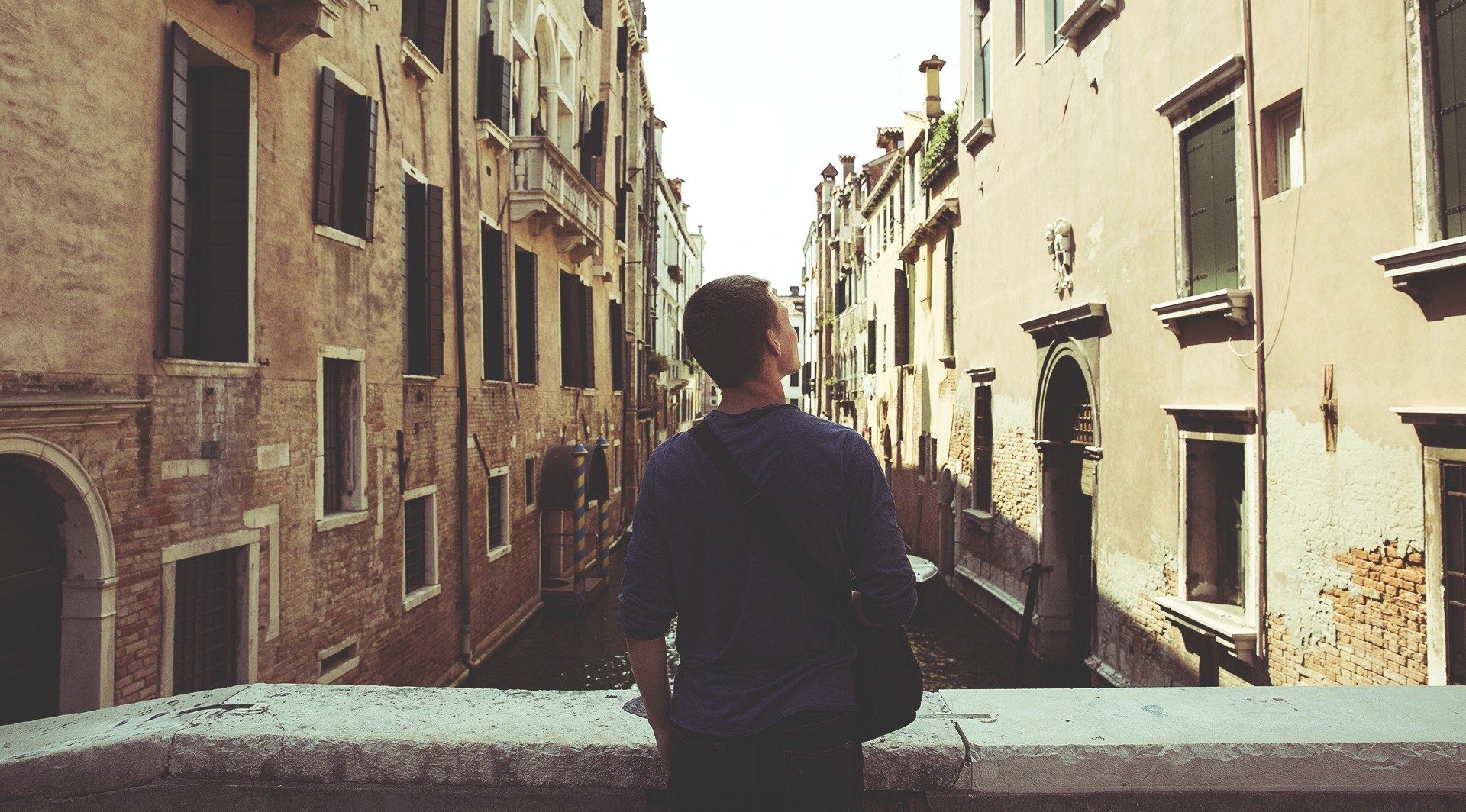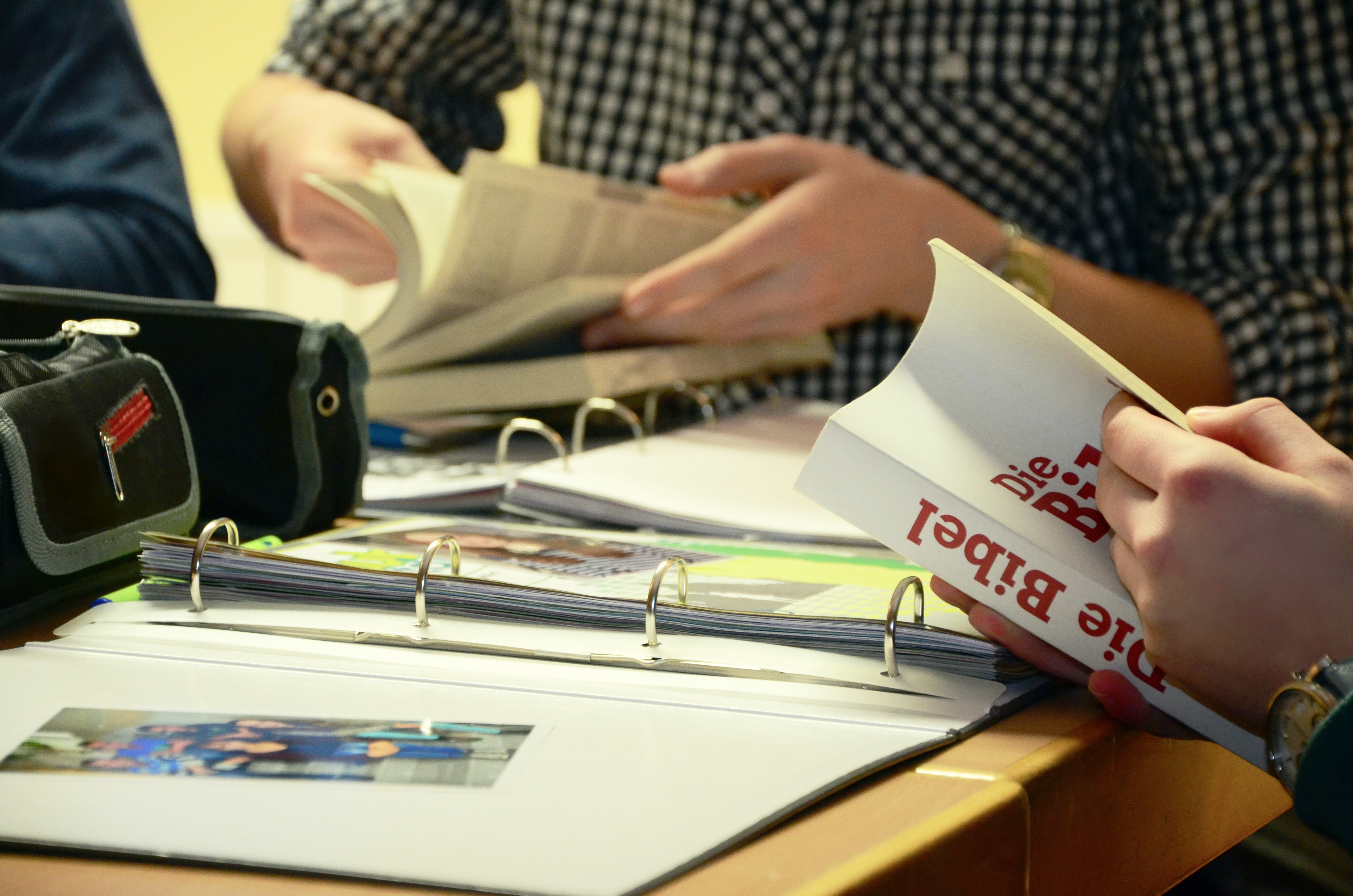What? Mobility of Youth and Youth Workers
Why?
Returning from Erasmus is usually difficult. Some people don’t like that the nonstop "fiesta" comes to an end and the necessary reality is back again, others don’t like the lack of multinational environment and foreign languages, others miss the moment of carelessness and freedom. I was feeling empty, too. The amazing stream of new information flowing from each side, the ability to learn foreign languages in other languages and be surrounded by other foreign languages. It all stopped suddenly and I returned to routine. At school, my colleagues asked me why I didn’t come home to write an Administrative law exam during my stay abroad. My friends don’t understand why I don’t order big beers and instead of drinking shots of 40% alcohol I just want to talk. In the supermarket, the shop assistant explodes on an English speaking customer: "Who can understand you?!" I feel weird.

How?
I often talked about my feeling of emptiness and you know how it is – only the one who asks will find out. My friend Zuzka told me the secret of EU projects for youth – Youth in Action (now under Erasmus + programme). I did not believe it at all. She said that you could find a project on a topic you like, wrote the organisers an email in which you explained why you wanted to participate and just waited for their answer. If they chose you, you’d go for a week on your mini-mini Erasmus exchange – costs fully covered. "Hmm ... of course!" I thought. After experiencing volunteering in Slovakia – sleeping in semi-broken rugs, paying for meals and transport – all that for the privilege to voluntarily work for a non-profit organization (which was building a private apartment in the heart of the national park), this information came to me as a ... fairy tale… no …impossible. But those unwanted “what if” thoughts finally won. I sent an email, they chose me and so I packed my backpack. With the belief that information materials didn’t lie and that I would really experience a highly professional debate on the aspects of migration and European citizenship somewhere in Sicily, I bought a ticket and gave to "Youth in Action" officially chance.

What?
The aim of this article is not to overwhelm you, dear reader, with definitions and information from textbooks. You can easily find them here...
I say it in my own words: imagine that you are a member of a youth organization (e.g. a civil society) and you have the possibility to invite groups of five people from five different EU countries to come to Slovakia for 5-10 days and to present them our country (I made up the numbers but they are approximate). Habits, traditions, values or Shooty’s caricatures, as you wish, and they not only really come but also bring something from their home.
Or imagine that you don’t want to just talk about culture because you have a serious problem in your region and you wish to find an interesting solution. For example, you are angry with young people for not wanting to vote, or you worry about tension with Roma community, or the public’s intolerance of disabled people. In short, you have a well-defined need. You set your goals, contact experts in the area (maybe you are one of them) and they help you to choose the appropriate means to achieve your objectives.

In both cases you have to create a good project, put it on the Internet and look for the groups from given countries which would like to participate. If you are successful, the national agency for E+ programme will approve the project and you’ll get EU fund for its implementation.
Sorry, I’ve described the process from different point of view – project organiser’s point of view. If you don’t have your own idea yet and you’d like to help others as a participant, choose a project, read the information in a so-called Infopack and ...I’ve already talked about this. You, as a participant, will be reimbursed travel costs – of course you won’t travel by a private jet, you have to be happy with economy class and you can’t lose the fly ticket. You don’t have to care about the accommodation either. You can stay in hotels, motels, hostels or in abandoned monastery – it depends on the organizer. And finally, you can leave pâté and canned food home, food is also gratis and usually it’s local and amazing (see my memories of Greek Moussaka or Sicilian Cannoli).
Really?
After several training courses and seminars that I attended I can say this: every project greatly depends on the organization that implements it and also on the attitude of the organization when it comes to the funds from the EU. It’s same as everywhere - you can come across loafers, hedonists and people who want EU money for themselves. On the other hand, there are really passionate (sorry) idiots who hardly give you time to breathe. They would drive you from one activity to another and by 11 pm they’d like to have a reflection group (group conversation about what you like / don’t like).
However, if I make an average, I skip the details and think about the experience I have acquired, I feel positive. Even the biggest loafers had the idea: we want to present our country in the best possible light. It’s paid by EU so we will show you what we can and tell you what we know.
Is it for me?
If you are a passionate tourist and your ego is hunting for new places on the map, it will surely please you that you’d have some free time during every project so you can take a selfie on the beach, on a hill or with some historic building. Additionally, you will meet people with the same passion and you can take selfies together, it certainly looks better on the social network.
If you really are social person, you are talkative, you like to listen or you like to be a part of the group, I think that you are on the right lines; not to mention that you can do it in any language. In those you learn in your free time and also in those of which you have the international certificates .. in a drawer.
I know, I know... you might say that these things are only superficial crap and that you are hard worker and don’t want to waste your time. During every project I met someone who wanted to take a serious look at the topic of the project and wanted to contribute with their opinion and solution. If you meet people like this during your project, it is highly possible that you will find a solution. And then an interesting video on YouTube, a nice web or an interesting activity for the public can be created.

Give it a chance
A small advice: as stupid as the project activities can seem, give them a chance. Take me, for example. For two weeks I was angry with drama exercises, spontaneous dancing to esoteric music and constant training of movement improvisation. The final product – a theatre performance – an improvised satirical sketch performed in the local high school changed my first impression. Not only weren’t we booed off the stage by the teenagers or called names, but these teenagers also actively participated. They performed in front of their classmates and discussed openly the problem of illegal migration in their country.
Yeah, of course...
No one says you won’t be disappointed, that during the project which promotes tolerance you won’t meet a girl from Prague who hates the Slovaks, a lad from Spain who takes the whole project as a reimbursed opportunity to drink all supplies of polish vodka, or the organisers who will put you all into one small room.
What for?
Leaving aside different aims and results of the project, the main benefits will come later. In my case it was fighting the prejudices and stereotypes. You can lecture me as much as you like, mate, but I can list some avid workaholics from Greece who works 16/7, some „open minded“ Turks speaking better English than your teacher, and living Italians who actually don’t gesticulate. (Just kidding, an Italian who doesn’t use hands when he speaks doesn’t exist.) Maybe you don’t see the point of it but what if you find out that even dudes from Hungary are cool and don’t care about Upper Hungary? What if dudes from Croatia find this out about the Serbian guys or Lithuanians about guys from Poland? What if we find out from first-hand experience that the nationality written in ID says nothing about who we are?
Besides, I consider these projects to be open forums. (Like so-called forums at universities or in National Council. In this case, however, it’s not paid sitcom for the public.) It’s an opportunity to present opinions, whatever they may be, as well as to listen to opinions of others in a friendly environment and tolerant atmosphere. You can come up with anti-European attitude, withdrawal from NATO or with radical solution of „gypsy question “. In other words, with opinions related to non-conformity. Unfortunately, I have to disappoint you – these are also quite common. In that case you can train your rhetorical or persuasive skills. Naturally, if you combine your argumentation with demonstrating power or shouting slogans, you are barking up the wrong tree.

The last warm words...
I’m convinced that the whole Erasmus+ programme, not just this small part, is an amazing idea. It supports what we really need today – cooperation and respect of sovereign states based on national pride and confidence. Trust me, if you were treated nicely by your neighbours, you, too, would want to do the same. I believe that if you spent an amazing time abroad, you’d want to present your country in the best possible light, too. You’d learn more about it, look for beautiful places and work on its improvement.
Hits: 320
